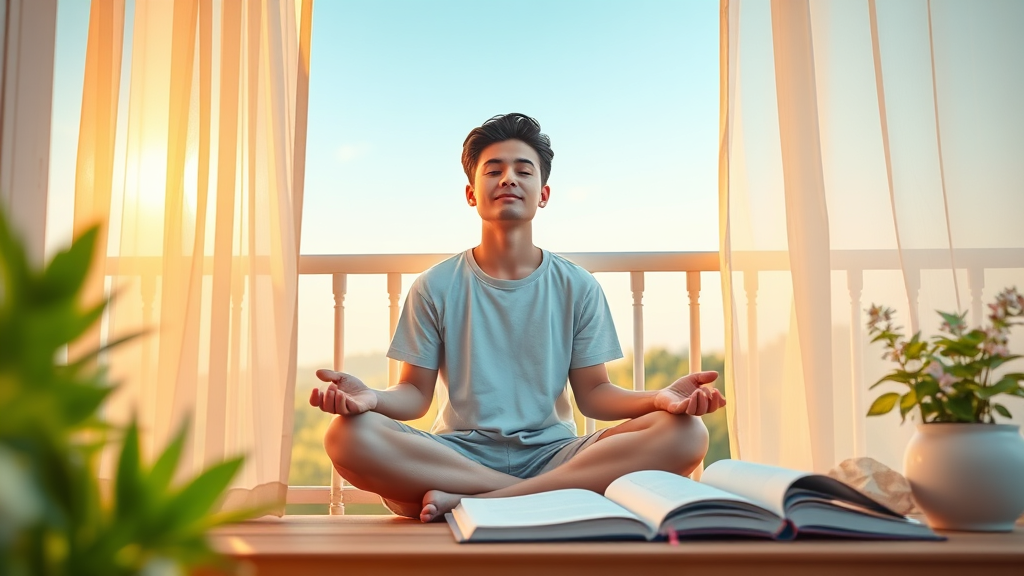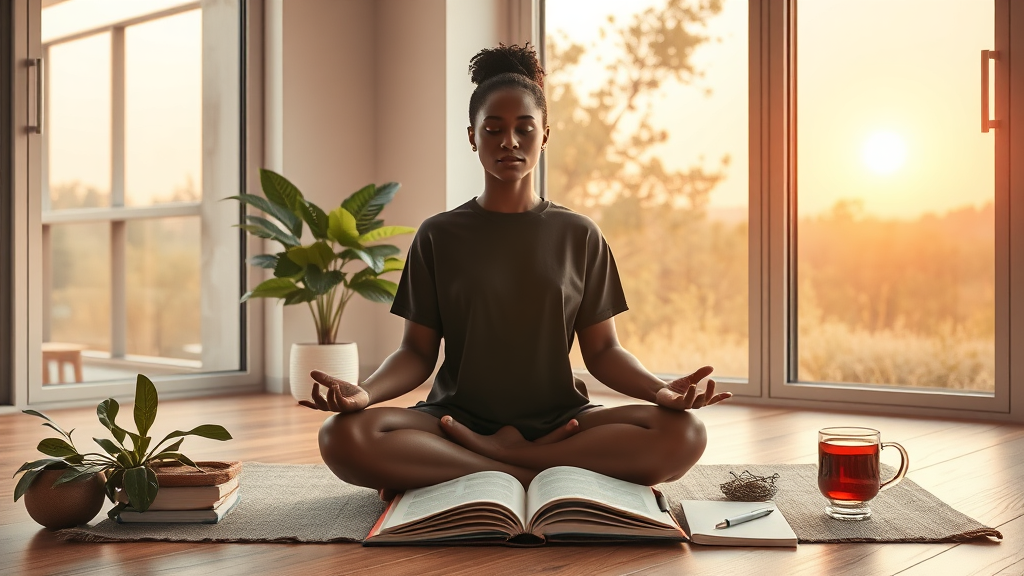
Feeling anxious is something we all experience from time to time. But when anxiety starts affecting your daily life or keeping you from doing the things you enjoy, it might be time to take a closer look at your habits. Luckily, there are simple changes you can make to manage anxiety levels. In this post, we’ll explore 10 daily habits to reduce anxiety naturally. These practical tips don’t require medication and can easily be incorporated into your routine to support better mental health.
1. Start Your Day With Mindful Morning Practices
How you start your day sets the tone for everything that follows. Creating a mindful morning routine can gradually help reduce anxiety over time. Instead of reaching for your phone the moment you wake up, take a few minutes to breathe deeply, stretch, or simply sit in stillness.
Consider journaling your thoughts, expressing gratitude, or setting daily intentions. These practices can help ground you and reduce the feelings of chaos that often fuel anxiety.
2. Prioritize Quality Sleep
There’s a strong link between sleep and mental health, and poor sleep can make anxiety worse. Developing healthy sleep habits supports both your mind and body. Create a calming bedtime routine, avoid screens an hour before bed, and aim for 7–9 hours of rest every night.
Try keeping your bedroom cool, dark, and quiet. If your thoughts race at night, keeping a pen and notebook nearby to jot them down can help ease your mind.
3. Move Your Body Every Day
Exercise doesn’t just benefit your physical health; it also plays a critical role in managing stress and anxiety. You don’t have to hit the gym for hours—a brisk 20-minute walk, stretching, dancing, or doing yoga can have a big impact on your mood.
When you move your body, you release endorphins—feel-good hormones—which help reduce stress levels naturally. Making daily movement a habit is one of the most effective daily habits to reduce anxiety naturally.
4. Practice Deep Breathing
It might sound simple, but controlled breathing is one of the fastest ways to calm your nervous system. When anxiety surfaces, your breathing can become shallow or rapid. By taking slow, intentional breaths, you signal your body to relax.
Try This Easy Breathing Technique:
- Breathe in slowly for a count of 4
- Hold your breath for 4 counts
- Exhale for 4 counts
- Repeat for 2–3 minutes
Doing this once or twice a day can lead to long-term benefits.
5. Limit Caffeine and Sugar Intake
If you’re prone to anxiety, pay attention to how much caffeine and sugar you’re consuming. These stimulants can increase heart rate, blood pressure, and trigger feelings of nervousness or panic in sensitive individuals.
Follow our social media to get an daily update!
Instead of multiple cups of coffee, try herbal teas like chamomile, peppermint, or lemon balm. Balancing your blood sugar by eating regular, nutritious meals can also prevent anxiety spikes.
6. Stay Connected with Supportive People
Human connection is powerful. Spending time with friends, family, or even a supportive community online can create a buffer against anxiety. Knowing you’re not alone makes it easier to manage stress.
Make it a habit to reach out to someone each day, even if it’s just a quick check-in. Choose relationships that lift you up, and consider distancing yourself from overly negative influences.
7. Practice Gratitude Daily
Shifting your focus from what’s wrong to what’s going right plays a crucial role in reducing anxiety. Practicing gratitude helps train your brain to recognize positivity, which can gradually reduce anxious thinking patterns.
Simple Ways to Practice Gratitude:
- Write down 3 things you’re grateful for every morning or night
- Reflect on a positive memory
- Express appreciation to someone through a message or note
Over time, these small acts can make a noticeable difference.
8. Minimize Digital Overload
Constant exposure to screens, social media, and news can overload your brain and heighten anxiety. Setting digital boundaries is a modern necessity if you’re looking to embrace daily habits to reduce anxiety naturally.
Try a digital detox for an hour or two each day. Turn off non-essential notifications and give yourself permission to unplug. Instead, engage in offline hobbies such as reading, drawing, cooking, or spending time in nature.
9. Eat a Balanced, Nutrient-Rich Diet
Food affects your brain chemistry more than most people realize. Nutrient deficiencies can impact mood and anxiety levels. Fuel your body with a diverse range of whole foods—fruits, vegetables, lean proteins, healthy fats, and complex carbohydrates.
Foods rich in magnesium (like leafy greens and nuts), omega-3 fatty acids (found in fish and flaxseed), and probiotics (like yogurt and fermented foods) are known to support brain health and may help regulate mood.
10. Practice Self-Compassion and Acceptance
Often, anxiety comes from being too hard on ourselves. Practicing self-compassion can soften this inner criticism. Talk to yourself kindly, as you would a friend going through a hard time. Allow yourself to feel what you’re feeling without judgment.
It’s okay not to have it all figured out. Developing a habit of compassion and acceptance can reduce overall tension and emotional resistance.
Building Long-Term Wellness
Reducing anxiety isn’t about quick fixes or perfection—it’s about consistent, supportive habits that nourish your mental and emotional well-being. Integrating even just a few of these daily habits to reduce anxiety naturally can create a ripple effect in your life.
Keep in mind, anxiety can have many sources. While lifestyle changes are incredibly powerful, seeking support from mental health professionals can provide additional insight and guidance. If you’re experiencing intense or persistent symptoms, don’t hesitate to reach out to a qualified expert.
Wrapping Up: Small Steps, Big Impact
In a world full of pressure and distraction, it’s easy to overlook the simple routines that can ground us. But with a little intention and practice, you can develop habits that reduce anxiety naturally and support a more peaceful, balanced life.
Start with one or two of these habits and build from there. With consistency, you’ll likely find that calm and clarity become more accessible each day. You deserve to feel at ease in your body and your mind—and it all starts with the habits you nurture daily.



